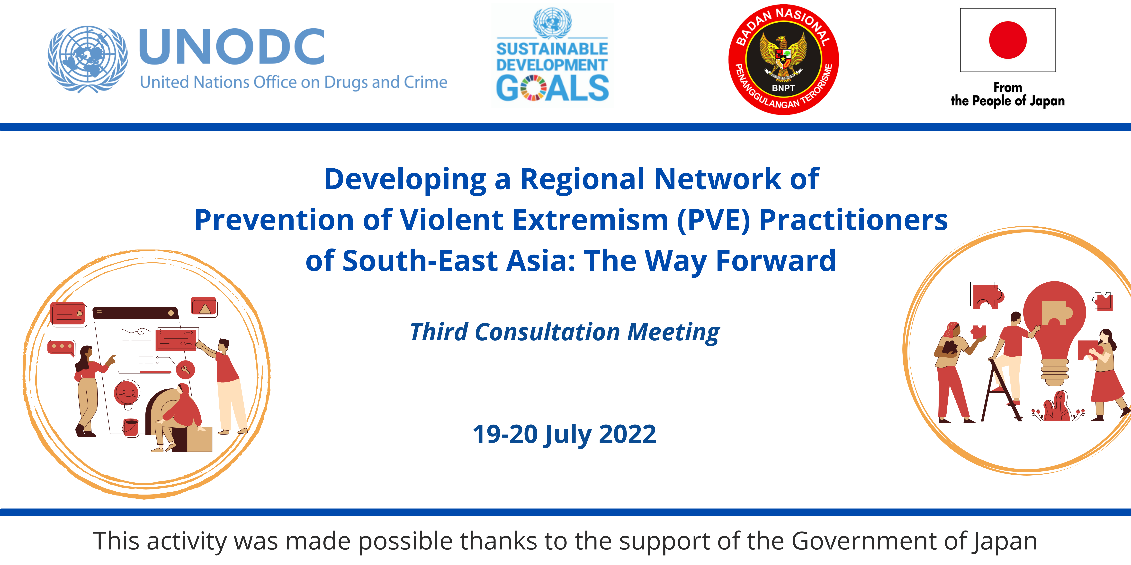
The region of South-East Asia continues to face terrorism threats, especially in the context of “lone-actor” attacks, according to a recent United Nations report. In addition, the ramifications of the COVID-19 pandemic continue to pose challenges for countering and preventing terrorism, with terrorists exploiting the health crisis by scaling up efforts to radicalize and recruit others, including online (CTED, The impact of the COVID-19 pandemic on terrorism, counter-terrorism and countering violent extremism 2021.)
To effectively address existing and emerging violent extremism threats, it is important to develop prevention responses that are coherent, human rights compliant and gender- and age-sensitive. These responses should be promoted through multi-disciplinary and whole-of-society approaches to empower communities and enhance their resilience to challenges related to violent extremism and strengthen social cohesion. Coordination and cooperation across the sectors and disciplines in this regard is key.
UNODC has been promoting the benefits of a multi-disciplinary and multi-agency collaboration to prevent violent extremism in South-East Asia jointly with South-East Asian countries and civil society stakeholders since 2018, when it first put forward the initiative to develop a regional network of preventing violent extremism (PVE) practitioners.
The regional PVE network, currently in its preparatory phase, is designed to connect frontline practitioners and promote exchange of knowledge, first-hand experiences and good practices in PVE.
To advance the operationalization of the network, UNODC convened a follow up consultation meeting jointly with the National Counter-Terrorism Agency of Indonesia (“Badan Nasional Penanggulangan Terorisme”, BNPT) on 19-20 July 2022. Participants from government agencies, academia, and civil society organizations agreed to further develop the PVE network’s organizational structure and its operationalization, including the nomination of national contact points and identification of thematic working groups. As a result, it was agreed to establish seven thematic working groups in line with regional needs and priorities, including on strengthening human rights and the rule of law approaches by criminal justice and law enforcement sectors; engaging communities and strengthening their resilience to violent extremism; empowering youth and enhancing their involvement in PVE; empowering women and enhancing their engagement in PVE; promoting education and critical thinking; strategic communications; and rehabilitation and reintegration. The purpose of the working groups is to enhance the capacities of PVE practitioners through peer-to-peer learning and sharing of knowledge and good practices.
One of the participants noted “this is a very important initiative that can truly facilitate collaboration across the region, so we can have a synergy of efforts towards preventing violent extremism.”
The activity was financed by the Government of Japan.
UNODC Promotes a Multi-Stakeholder Approach to Prevent Violent Extremism in South-East Asia